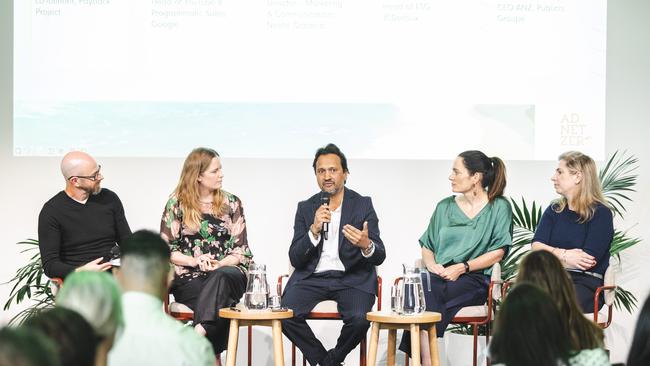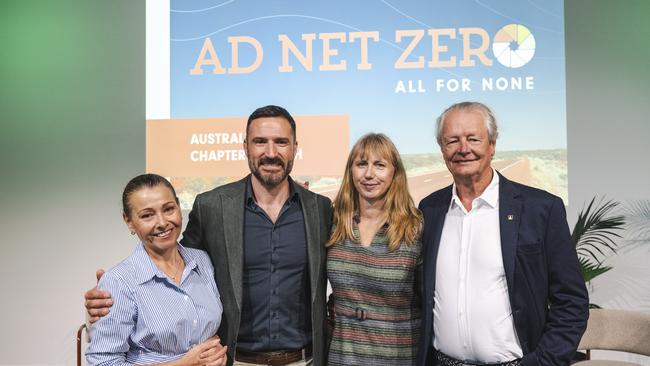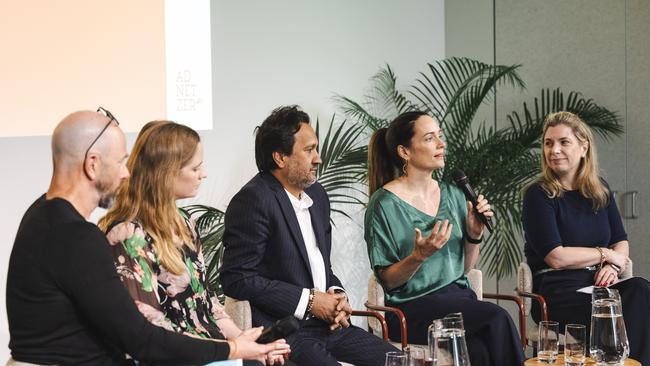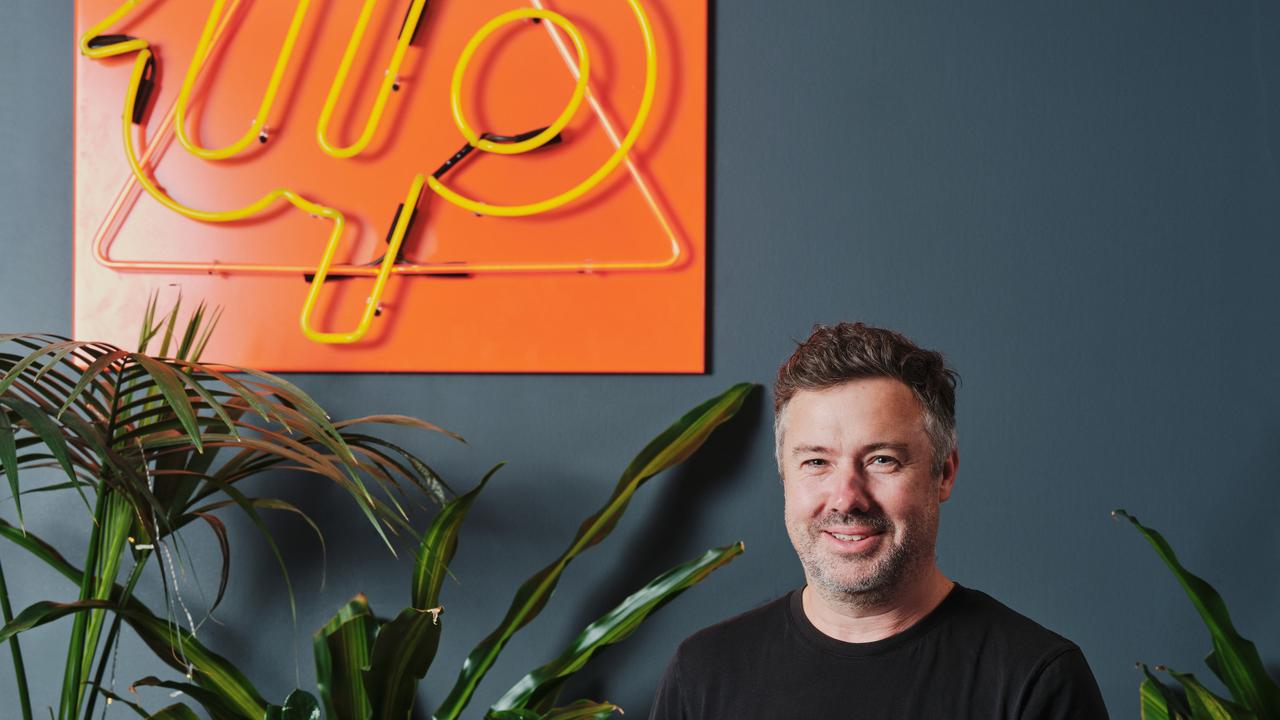Ad industry steps up to fight sky-high emissions footprint
The advertising industry is signing on to a global carbon emissions reduction initiative but with the market already playing catch-up will AI and its massive energy use push it further behind?

A coalition of advertisers, agencies and media platforms have teamed up to address the ad industry’s sky-high carbon emissions, which are equal to those of the airline industry.
Lead by the industry’s peak trade bodies, the Australian Association of National Advertisers, Advertising Council Australia, Interactive Advertising Bureau Australia and the Media Federation of Australia, the coalition has launched the local chapter of Ad Net Zero, a global initiative to accelerate the decarbonisation of the industry and promote and drive change.
The initiative is backed by 25 foundation supporters including major corporations such as Arnott’s, Lion and Nestle, and a host of media and advertising businesses including Dentsu, Foxtel, Google, GroupM, IPG Mediabrands, JCDecaux, Meta, News Corp Australia, Nine, NOVA, Omnicom Media Group, oOh! Media, Publicis Groupe, QMS Media, Scope3, SBS, Val Morgan and Yahoo.

It marks the first time the advertising bodies have joined together on an environmental initiative of this scale and sees specific companies take accountability for the significant carbon footprint being generated.
Publicis Groupe Australia and New Zealand chief executive Michael Rebelo said Ad Net Zero provided critical measurement tools to drive collaboration.
“It’s important that we’ve got all four industry bodies here as that duty of care that we all feel across all sectors of our industry is what’s going to help us get the acceleration we need and allow this open-source mindset.
“Measurement is really important and having that on an industry-wide level is critical.
“Every individual and organisation, will have their own agenda and time fames in this space. What Ad Net Zero does is allow us to keep everyone on track because this is not a two or three year plan. This is a real mid to long term plan, and we need that consistency in the industry to help us just stay that course and keep democratising the information, the tools, the measurement practices, and also to feel a little bit of that competitive spirit as well.”
The initiative has fostered greater accountability within businesses in other markets, according to Caroline Oates, Google Australia and New Zealand head of YouTube and programmatic sales. “It will increase the business and commercial imperative. and it raises the bar for everybody and raises the accountability for all of us. In markets that are further ahead of us with Ad Net Zero, our teams have got more accountability, and I hope that’s something that will come to Australia.”
Nestle Oceania marketing and communications director Anneliese Douglass said clients and agencies needed to take more accountability for emissions.
“Nestle is building a framework for marketing and advertising,” she said. “It requires us to have very engaged conversations with our partners. We need to understand what our partners’ strategic approach is and how we can work together with them.
“It’s a collaboration, but it does require advertisers to have a very clear voice in this, to say, I want to do this and I need to do this. Clients also need to say this is really important to us, and this is how we want to make changes in our creative, in our media buying and in the platforms that we choose.”
The Ad Net Zero launch responds to the overwhelming research around consumer preferences for sustainable and environmentally responsible brands. Research from PWC in May revealed 46 per cent of consumers bought sustainable products to reduce their impact and were willing to spend 9.7 per cent more on average for sustainably produced goods — even as cost-of-living pressures continued.
However, it also coincides with increased pressure around greenwashing and greater regulation around the environmental claims made by companies in their marketing and communications, following a crackdown by the Australian Competition and Consumer Commission .

With Australia falling well behind other countries with its carbon reduction targets, the pressure is on to catch up, however, with the rush to adopt artificial intelligence and the enormous energy resources required to run AI, is the gap set to grow further?
Sustainability author and consultant John Pabon told The Growth Agenda there was a concern the industry was blindly walking into an unregulated emission accelerator as it embraced AI.
“The thing that a lot of people aren’t talking about is the massive amount of resource that AI uses,” he said. “Around 2.1 million litres of water a day are used by a single mega data centre — and there’s thousands of those around the world. Every AI search somebody does is equal to 100 millilitres of water used, which doesn’t sound like a lot, but there are millions of searches happening every day, so it does have a big impact if it’s not regulated. Google’s emissions have grown by 50 per cent almost since 2019 and they attribute that mostly to AI. We’re walking blindly into this world of AI and not really thinking of the environmental impact. AI is great. It’s certainly beneficial for a lot of things, but we shouldn’t be using it just to create fun pictures.”
However, Ms Oates said, “From an AI perspective, there is absolutely environmental impact and we’re really cognisant of that. At the same time, I think it’s a balance, because we also see AI and the infrastructure that’s built around that as having the potential to power an answer and drive climate action.”
Mr Pabon encouraged the ad industry to harness its skills to drive climate action.
“What the industry has always been really bad at is communication of the issue. The images of polar bears and melting ice caps just makes people sad and doesn’t really encourage anything,” he said. “Our big focus should be on giving people the tools to actually do something, that has always been the missing piece. The ad industry is so well placed to do that, more than any other industry, that’s where they should really be focusing their attention.
“Where can they drive the biggest impact? It’s right in their wheelhouse, reducing emissions is not in their wheelhouse. As communication professionals, you know that’s what they know how to do. So do that.”


